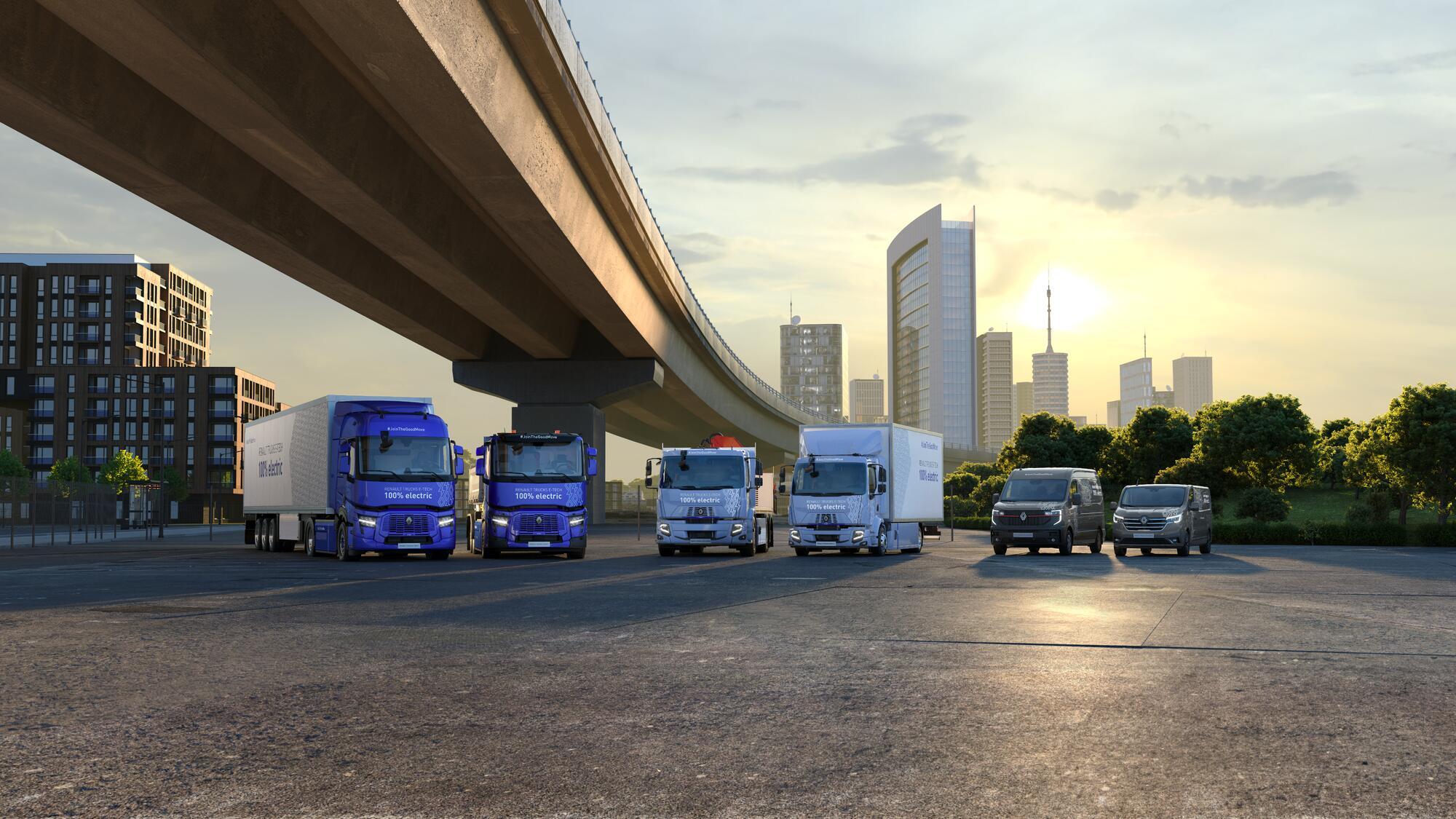
Electric commercial vehicles are becoming a familiar sight on UK roads, yet many business owners still feel unsure about making the switch. Rising fuel costs, changing regulations, and the push for lower emissions mean it’s now a good time for fleets to explore electric options. Even so, the misinformation surrounding electric vehicles can make things more complicated than they actually are.
To clear things up, we’re looking at some of the most common myths surrounding electric commercial vehicles and sharing what real businesses are experiencing today.
“There aren’t enough charging points for electric vans and trucks.”
A big concern for businesses is that the UK doesn’t have enough public charging points to support commercial electric vehicles. While the public network is still growing, the reality for most operators is far more reassuring.
Electric commercial vehicles are designed to be charged in simple, practical ways that fit naturally into everyday fleet routines. Most commercial sites already have the power needed to charge an electric van or truck. Many workshops, warehouses and factories run on a stronger electrical connection than a typical home. This is known as a three-phase supply, and it delivers the steady capacity needed for reliable depot charging. With this in place, vehicles can charge overnight and begin the working day with a full battery, without relying on public chargers at all.
For even more flexibility, energy can be topped up during natural pauses in the day. Short charging windows during breaks, loading periods or planned stops can boost range without affecting schedules.
If full control is needed, it’s also possible to install a higher-capacity charging unit on site. This is a one-off investment rather than an ongoing, volatile cost such as fuel. A fast charger can restore a significant amount of range in a short period of time, making it ideal for fleets that need quick and predictable turnaround between shifts.
At the same time, the public charging network is expanding rapidly across the UK and Europe. Manufacturers, industry bodies and infrastructure partners are continuing to increase the number of high-capacity chargers designed specifically for commercial vehicles. This growth will make public charging even more accessible for long-distance or multi-site operations in the years ahead.
Together, these developments show that charging is becoming easier, faster and far more adaptable than many people assume. Businesses don’t have to rely on public infrastructure alone, and with the right depot setup, charging fits neatly into the working day.
“Electric trucks and vans cost more to repair and maintain”
Another common belief is that electric vehicles must be more expensive to look after because the technology is newer. In reality, electric trucks and vans often cost less to maintain over their lifetime.
With no clutch, no gearbox, no oil changes and far fewer moving parts overall, there is simply less that needs servicing or replacing. Regenerative braking eases wear on brake components and the smoother power delivery reduces strain on the drivetrain. Day-to-day maintenance becomes more predictable, and in many cases, more cost effective.
At Norfolk Truck & Van, we stock only the leading electric vehicles in the industry, including the Renault E-Tech range. These models offer the same capability as their fuel-powered counterparts, with lower running costs and reduced emissions.
“Electric vans and trucks can’t tow or carry proper commercial loads.”
A long-standing misconception is that electric vehicles don’t have the strength or pulling power needed for commercial work. In reality, electric drivetrains offer instant torque, which can boost performance under load and make towing smoother.
Manufacturers like Renault design their electric trucks to mirror or exceed the capability of their diesel equivalents. This includes a wide range of body types, payload options and applications that suit trades, logistics, construction and municipal work.
For businesses that regularly carry heavy tools, equipment or goods, the Renault E Tech line-up provides the power and stability needed to get the job done without compromise.
“Electric vehicles become unreliable in winter and struggle in cold weather.”
Cold weather is often discussed when people talk about EVs, and it’s true that batteries behave differently in lower temperatures. However, a dip in range doesn’t mean vehicles become unusable or unpredictable.
Modern electric vans and trucks account for winter conditions by managing battery temperature, optimising heating systems and allowing pre-conditioning before the vehicle is driven. These features help keep performance steady in colder months.
In practice, many fleets across colder European climates user electric vehicles year-round without operational issues. With sensible planning and overnight charging, electric commercial vehicles remain dependable whatever the season.
Making the switch with confidence
Electric commercial vehicles aren’t the future anymore – they’re very much in the present. They’re already helping businesses cut fuel costs, meet emissions requirements, and improve day-to-day operations. Many of the concerns people still have are based on old information or assumptions that don’t reflect the vehicles available today.
As your trusted local truck and van dealership, we stock the Renault E-Tech range across our depots in Norwich, Ipswich and Enfield. We offer a variety of payment options including finance, and can deliver across the UK. Our team are here to answer questions, talk through charging options and give straightforward, transparent guidance. Get in touch with your local depot today to see what the power of electric can do for your fleet.